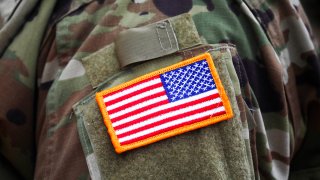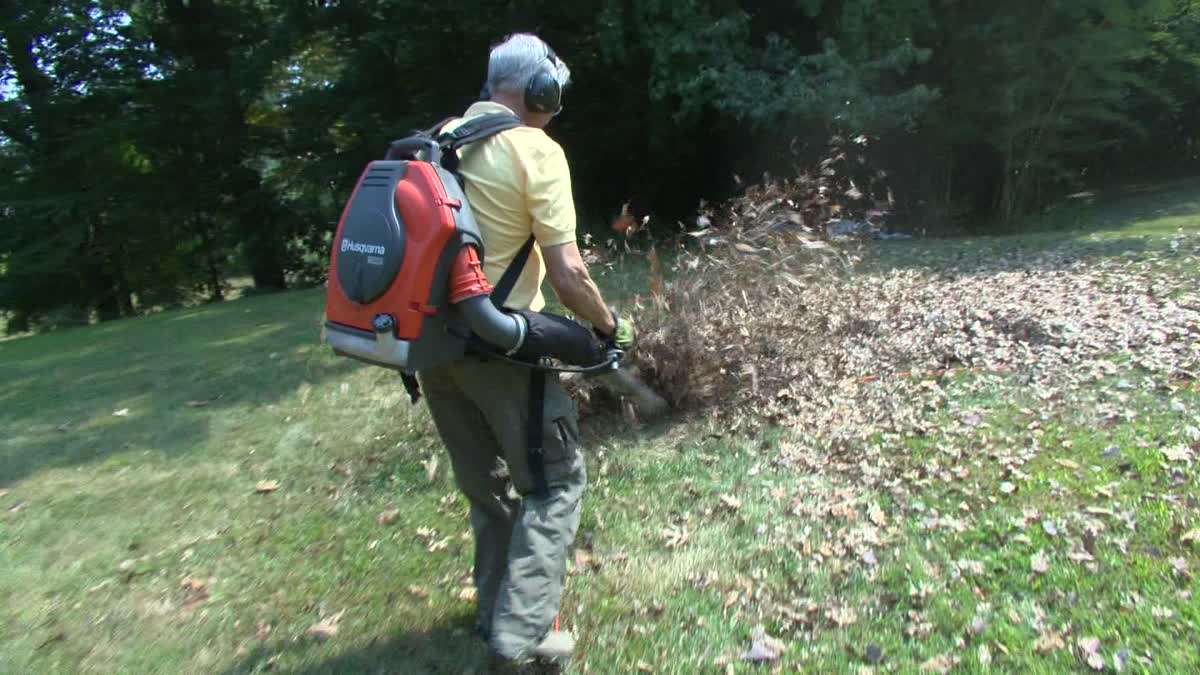
This was no “milk run” trip on the B-24 Liberator bomber.
The 10-man U.S. Army air crew, which included Bob Teichgraeber of Collinsville, was on a mission with dozens of other American planes on Feb. 24, 1944, to bomb a factory where Messerschmitt 110 fighter planes were produced in Gotha, Germany.
They faced heavy flak from the ground. In the air, they faced German fighters trying to repel the bombing raid.
Teichgraeber, who served as a gunner on the plane, said they were able to drop their bombs in the daylight attack but about 10 minutes later, a German fighter shot the oxygen tanks on the B-24 and a fire broke out.
Teichgraeber and five others successfully parachuted from their burning bomber, but that was his last day of freedom for more than a year.
He survived a severe injury to his right foot that hit part of the plane when he parachuted. He survived 421 days as a prisoner of war. And he survived a forced march when his weight dropped from 135 pounds to about 90 pounds before he could escape on April 15, 1945.
Today, Teichgraeber is 100 and still lives in his own home with Rose, his wife of nearly 70 years.
Local
He is one of about 325,000 World War II veterans who are alive today, according to an estimate from the U.S. Department of Veterans Affairs. More than 16 million Americans served in the war.
On this Veterans Day, Teichgraeber remembers his wounded and fallen comrades along with his fellow World War II veterans who are mostly in their 90s today.
“I’m proud to be a part of them,” he said. “They’re still living. I think Tom Brokaw said we were what the ‘Greatest Generation’ and all that good stuff. You gotta give them credit.
“I think they did a heckuva job through all these years. You’d have to say they persevered.”
Before going to England, Teichgraeber received training at Army bases in Mississippi, Texas, Colorado and Nebraska.
One of his highlights occurred in Colorado in 1943 when he saw one of his heroes, Franklin Delano Roosevelt. The 32nd president flashed a big smile and waved a white hat as his motorcade went by.
“He was kind of my pride and joy, a four-term president,” Teichgraeber said.
“I always thought that they should put another face on those rocks up there in South Dakota,” he said in reference to Mount Rushmore.
Teichgraeber’s 10-man crew formed stateside before they took a southern route to England via Brazil and Africa. He believes he is the last living member of the crew.
After the German Messerschmitt 109 fighter plane hit Teichgraeber’s bomber, the crew realized the B-24 could not be saved and they had to parachute.
Teichgraeber was captured and taken to Frankfurt in central Germany and then to a POW camp in what was then known as East Prussia. Three other non-commissioned crew members also were sent to this camp.
In July 1945, he recalls hearing Russian gunfire as the Germans moved him to a POW camp in Poland. It was during this transfer that he was separated from his B-24 crewmates.
In early February 1945, the Germans forced Teichgraeber and about 2,000 other POWs to march hundreds of miles across northern Poland and northern Germany toward the Elbe River. There wasn’t much food. They slept in fields and barns in the winter weather, and they suffered from frostbite and dysentery.
“It was rough,” Teichgraeber said.
They eventually made it to a POW camp near the Elbe River but they only stayed there for about five days before the march resumed.
After nearly 65 days on the march, Teichgraeber and a friend from Texas, John Bulla, were able to escape when a disturbance occurred during a head count. They slipped into a barn and, on the next day, were rescued by British soldiers.
Teichgraeber said the British were welcoming and gave him a uniform to wear. One of his cherished possessions is a photo of him in the British clothing.
“They cleaned me up,” he said. “I looked human again.”
On April 19, 1945, he was repatriated with American soldiers. After rest stops in Belgium and France, he boarded a ship home.
“I was very close to New York when the war ended,” Teichgraeber said.
Teichgraeber was discharged with a rank of staff sergeant.
After the war, Teichgraeber returned to National Cash Register, or NCR, and worked in the service department. He’s now been retired for the same amount of time he worked at NCR — 39 years.
Teichgraeber and his wife, Rose, were married on May 12, 1951, so they are looking forward to their 70th wedding anniversary next spring. They have one son, James, who is retired.
It wasn’t until three years ago that Teichgraeber talked openly about his experience as a prisoner of war.
“This picture came out of the cabinet three years ago,” he said of the photo of him in the British uniform. That’s when word spread about his service. He was featured in The American Legion magazine in January 2018.
Teichgraeber said he and Rose, 98, appreciate all of the help they have received from friends and people they don’t even know.
“We’ve been so blessed,” he said.
Caregivers visit their home each day and Teichgraeber said he can still mow his lawn and drive his car that features an Illinois ex-POW license plate.
Teichgraeber is thankful for the recognition he’s received as an ex-POW. They include a proclamation by Madison County to declare Aug. 22 as “Bob Teichgraeber Day” in honor of his 100th birthday; a plaque from the city of Collinsville and a banner of his picture displayed on a street light; an Honor Flight on Nov. 11, 2011, to Washington, D.C.; a Quilt of Valor he received when he turned 97; and he was this year’s honoree for the 24-hour vigil run for the National POW/MIA Recognition Day at Scott Air Force Base, although he couldn’t attend the ceremony because of the coronavirus concerns.
As Teichgraeber reminisces on his 100 years, he’s grateful for people like Robbie Wetzel, a Mount Zion nurse who accompanied him on his Honor Flight trip. On a subsequent trip she held photos of Teichgraeber at sites in Washington and sent him photos of her doing that.
He thinks about his late friend, John Bulla, who was a successful businessman in Texas, and how they endured the hunger march across northern Europe.
“Well, looking back, I said, ‘I think the Good Lord is looking after ol’ John and me,’” he said. “You know, you had to have hope and faith. You can’t get down on anything.”



